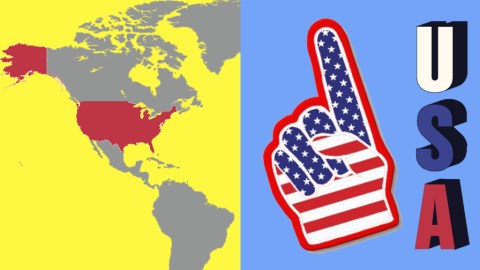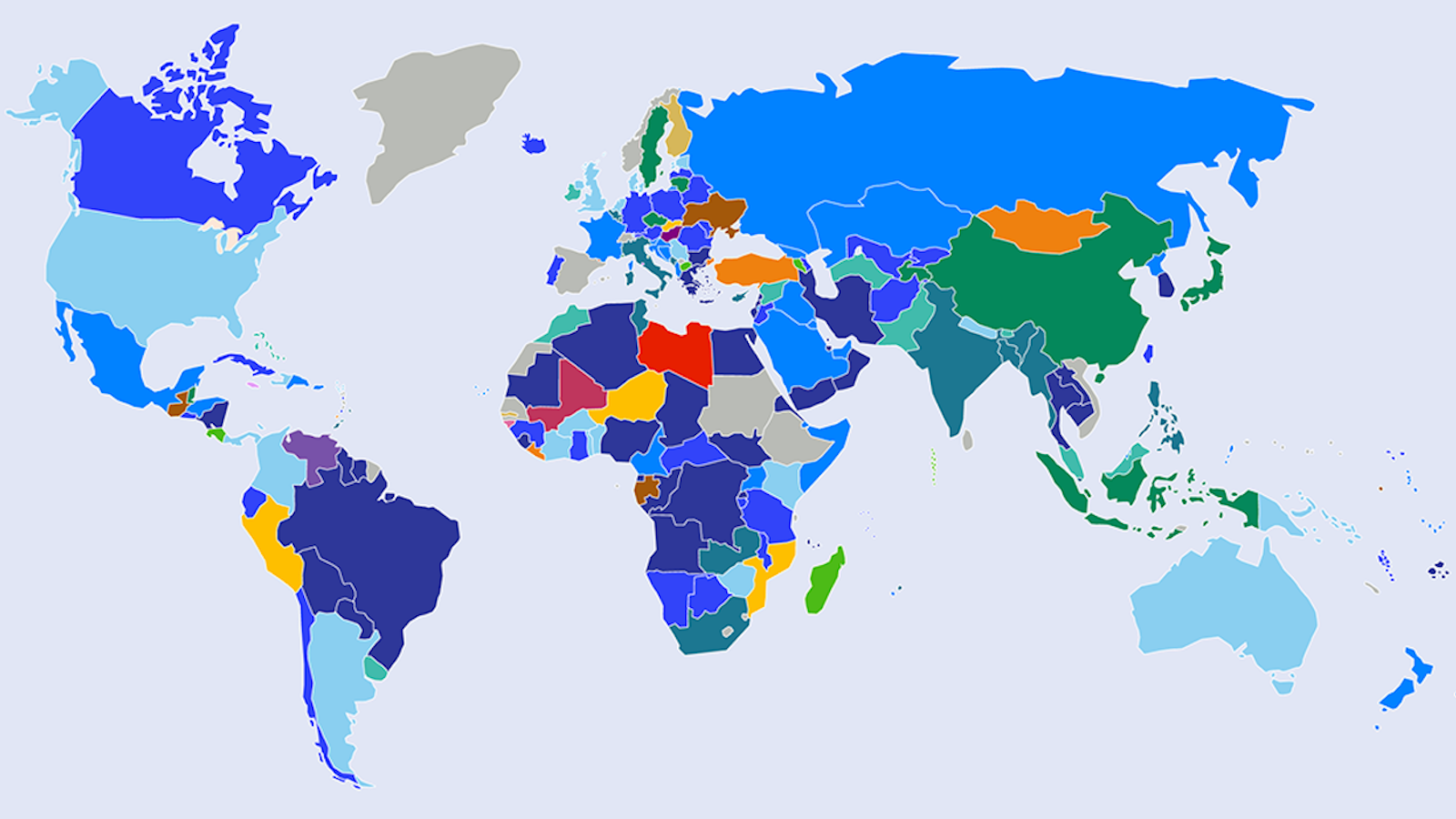7 world maps show the highs and lows of American exceptionalism

Of course, every country is unique. But only America is extraordinary. That is the thumbnail definition of ‘American exceptionalism’, and it leaves enough room to spin it either way—good or bad.
America as a beacon of democracy and liberty, with the unique mission to spread both across the globe; or an oppressive hegemon, the armed wing of a capitalist ideology destroying all souls, lives and ecosystems that come before it.
As the rest of the world catches up to the U.S., economically, militarily and in other ways, the theory of American exceptionalism is losing adherents. Perhaps America is neither the best or the worst country in the world.
Be that as it may, these maps are a reminder that the U.S. is still a very different place from other countries around the globe.
Celsius vs. Fahrenheit

“Oh God, I forgot about the Americans,” cries Celsius, in this imagined dialogue with Fahrenheit. Yes, his system may have logic on its side and be practised by almost (1) all other nations on the planet, yet the U.S. stubbornly sticks to a scale based on “the freezing point of a mixture of ammonium chloride brine” on one side, and “the approximate temperature of the human body” on the other.
The Celsius scale—zero when water freezes, a hundred when it boils—is easier to remember than the Fahrenheit scale. To convert °F to °C, subtract 32 then multiply by 5/9. For example, 77°F is 25°C.
It’s not that America hasn’t tried. But perhaps it hasn’t tried hard enough. Congress passed the Metric Conversion Act back in 1975, however, the Act counted on a ‘voluntary’ transition as people got more used to the Celsius scale. Clearly, that hasn’t happened.
Metric vs. imperial system

Americans think in inches, yards and miles. The rest of the planet—or nearly all of it—has adopted the International System of Units and thinks in centimetres, metres and kilometres (and kilos instead of pounds). The only other exceptions are Liberia and Burma/Myanmar.
Curiously, the U.S. does have a Metric Programme—until recently, it had just one employee. One of the many objections to introducing the metric system in the U.S.: it would give the Soviet Union a great chance to invade.
Paris Agreement holdouts

Last June, President Trump controversially announced the withdrawal of the U.S. from the Paris Climate Agreement, which aims to limit greenhouse gas emissions in order to minimize the average global temperature increase to 1.5°C. There are only two other countries that have not signed up to the deal: Nicaragua (for which the deal did not go far enough) and Syria (in the midst of a civil war).
Paid maternal leave

Most countries in the world offer paid maternity leave. Only eight countries don’t. Seven are small, developing nations: Papua New Guinea, Palau, Nauru, Western Samoa and Tonga (all in the Pacific), Liberia (see also: metric system holdouts) and Suriname. The other one is—you guessed it—the U.S.
Firearms per capita

The U.S. is the only country in the world with more than 75 firearms per 100 inhabitants. The only other country that comes close is Yemen, which is in the grips of a bloody civil war. Quite a few countries fall into the 25-50 handguns per 100 inhabitants range, including Saudi Arabia, Iraq and Oman in the Arab world, but also European countries like France, Germany, Switzerland, Austria, Serbia and most Scandinavian countries. Apart from them (and Uruguay) all other countries have less than 25 firearms per 100 inhabitants (2).
Perhaps you’ve noticed a pattern emerging. Put together, it seems like these maps are ganging up on America. Stupid Americans, for sticking to imperial weights and measures, and Fahrenheit instead of Celsius. Dangerous Americans, with all those guns. Selfish Americans, leaving the Paris Agreement. Poor Americans, without paid maternal leave. It’s almost as if being the exception is something bad. But America can still do great things that no other nation can. Like: putting a man on the Moon. Or if that’s a bit too far ago for your taste: launching a Tesla into space.
Put a man on the moon vs. Didn’t put a man on the moon

Cars in space vs. No cars in space

Maps found here, here, here, here, here and here.
Strange Maps #888
Got a strange map? Let me know at [email protected].
(1) Fahrenheit is used as the official temperature scale only in the U.S., the Bahamas, Belize and the Cayman Islands.
(2) To be fair, a few countries with no data are likely candidates for high firearms-per-capita ratios, notably South Sudan and Afghanistan.




